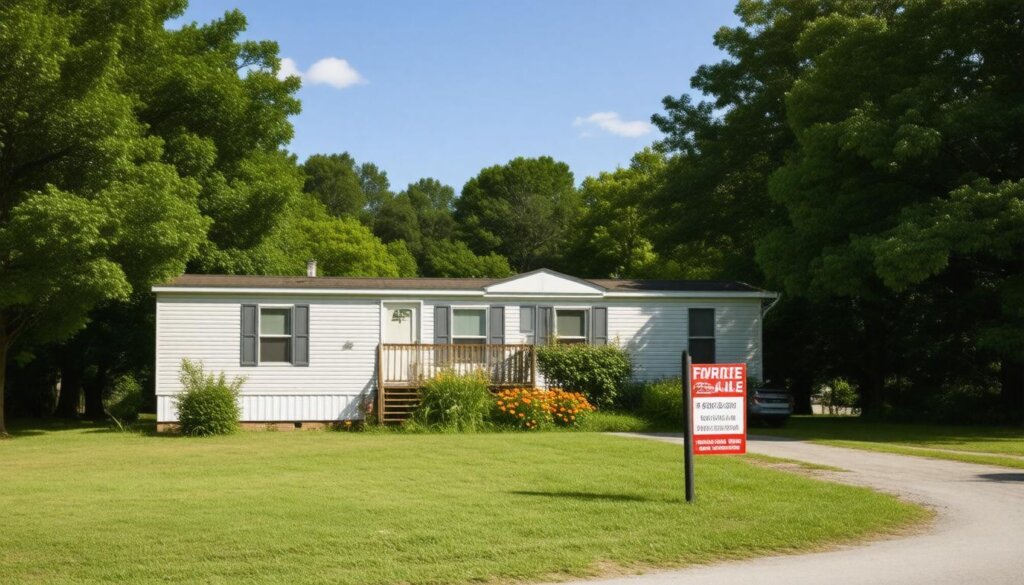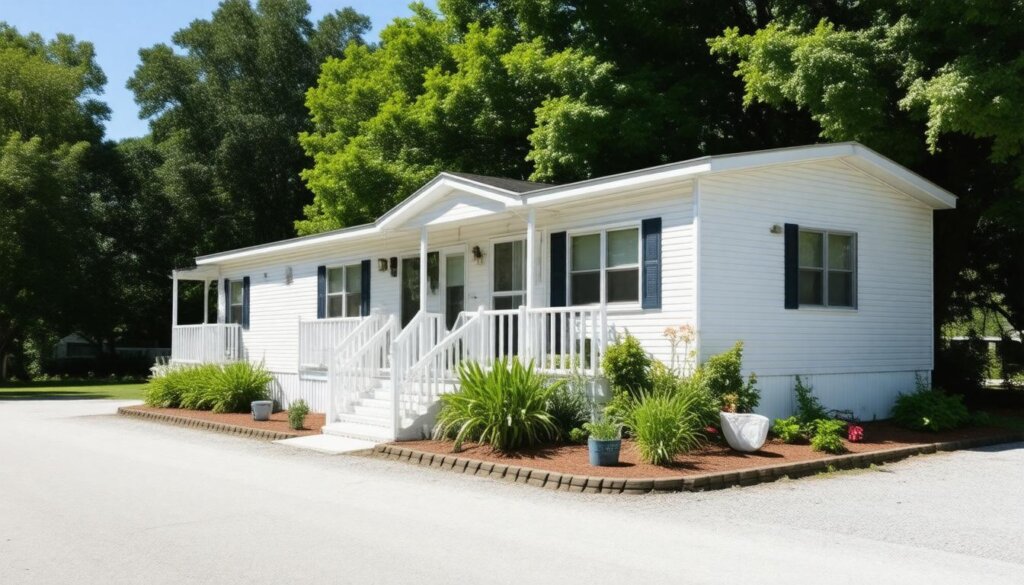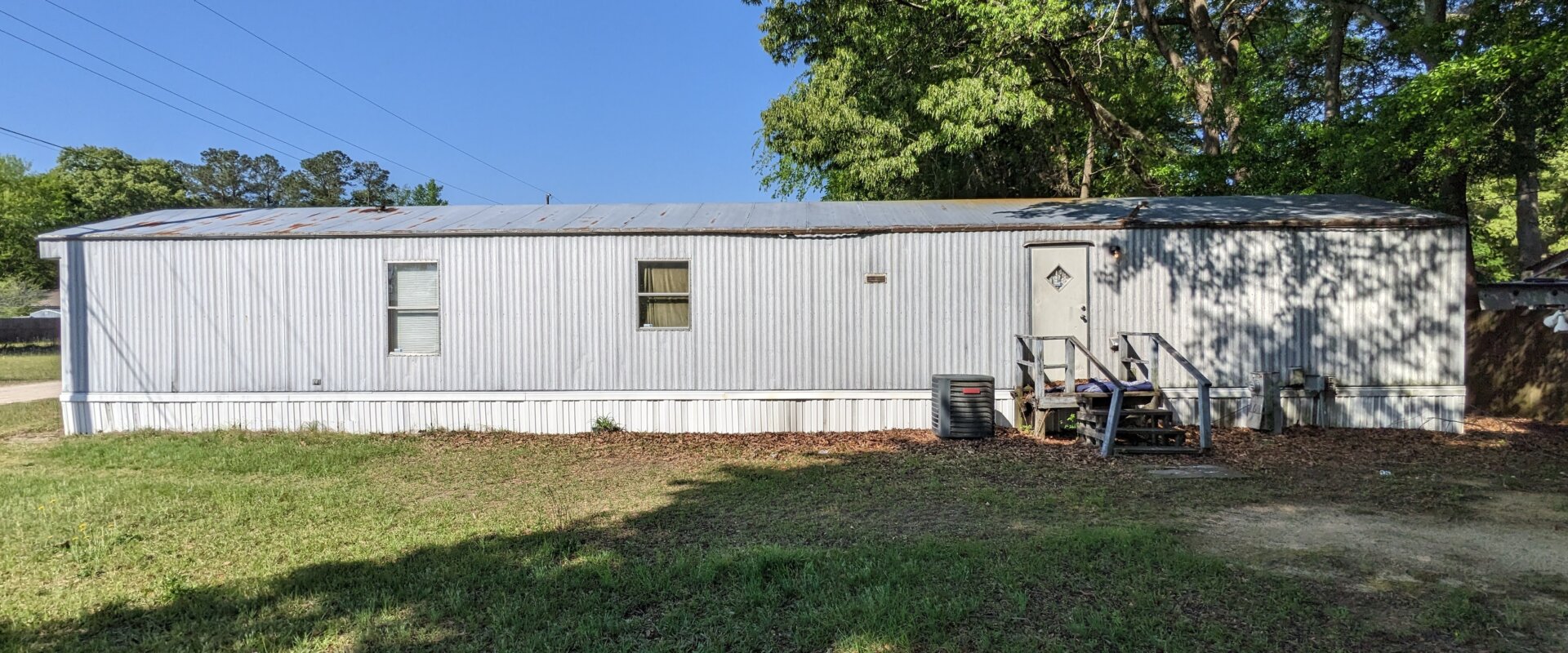Going through a divorce is tough enough without having to worry about selling your mobile home. It’s a big decision that involves not just navigating your feelings but also understanding the legal and financial aspects that come with it. If you’re finding yourself in this situation, you’re not alone—many people face similar challenges. In North Carolina, where laws regarding marital property can feel overwhelming, there are clear steps you can take to make the process smoother. With some guidance and support, selling your mobile home during a divorce can be more manageable than you might think. Let’s dive into the essential guidelines to help you navigate this difficult journey.
When selling a mobile home during a divorce in North Carolina, it is crucial to consult with legal counsel to understand how marital property laws will impact the sale. Additionally, you can streamline the selling process by working with companies like Logan Mobile Homes, which specialize in quick cash offers and have experience navigating sensitive situations such as divorces, ensuring a smoother transaction for both parties involved.

Property Division During NC Divorce
In North Carolina, the law dictates that assets acquired during the marriage, including your mobile home, are considered marital property. This is significant because, in the throes of divorce, emotions can run high and disputes over who gets what can complicate matters further. Both parties are required by law to disclose all marital assets honestly. This includes any mobile home purchased during the marriage, which means you can’t leave anything unaccounted for simply because it might be favorable for one party’s claim.
The key takeaway here is transparency; failure to offer an accurate disclosure could lead to unintended consequences during the proceedings.
Now, let’s discuss what happens next after disclosure. Once both parties have laid out their claims regarding property, the value of shared assets must be assessed.
This process is fundamental because not only does it impact how your mobile home is divided but also affects other property distributions. For example, if Jim and Sarah’s mobile home needs repairs or has depreciated in value since they bought it, its valuation will reflect those realities and impact negotiations on what each party receives.
Understanding the core principles behind how property is divided can be crucial to making informed decisions moving forward. North Carolina uses equitable distribution rather than equal distribution which means outcomes may not be 50-50. It’s essential to embrace a mindset aiming for fairness rather than strict equality.
Reflecting on why this matters: On average, disputes over asset division contribute to approximately 50% of divorce proceedings. Understanding local laws helps significantly shape expectations about potential outcomes, potentially reducing anxiety when it comes time to negotiate.
With a clear grasp of what constitutes marital property and how equitable distribution applies to your situation, the next crucial step involves determining the worth of your mobile home—this plays an equally important role in reaching a fair resolution.
Evaluating Your Mobile Home’s Worth

To begin with, assessing the value of your mobile home requires several considerations to ensure you receive a fair offer that reflects its true worth. Much like any other property, mobile homes have distinct features that can significantly influence their market value, such as location, age, condition, and any renovations or upgrades made over time. Even small changes can yield substantial returns.
Engaging a Professional Appraiser
One of the most effective ways to accurately price your mobile home is to hire a licensed appraiser who focuses on mobile structures. These professionals possess the expertise to evaluate your home thoroughly by analyzing key factors, such as market trends and comparable properties in your area. By relying on their knowledge, you’ll gain insights into what buyers are currently willing to pay for similar homes.
Did you know? According to the National Association of REALTORS®, homes that are appraised professionally often sell for 17% more on average than those that are not. This statistic underscores just how valuable a proper appraisal can be—not only does it inform your pricing strategy, but it can also set the stage for a smoother selling process.
Additionally, an appraisal provides an unbiased perspective, which is essential when emotions are running high during life transitions such as a divorce. Potential buyers will feel more comfortable knowing that they are purchasing a well-valued property backed by professional evaluation. This ultimately strengthens trust and could expedite the selling process.
With a clear valuation in hand, you’re now positioned to explore the practical steps necessary for selling your mobile home efficiently and effectively. Understanding this valuation lays the groundwork for establishing a successful sales strategy that accommodates both parties’ needs.
Steps to Sell a Mobile House

Step I – Prepare the Home for Sale
Preparing your mobile home for sale is akin to setting the stage for a captivating performance. Think of the first impression you want to leave on potential buyers; it matters immensely. Begin with a thorough cleaning—remove clutter, clean surfaces, and give those windows a good shine.
Staging is equally essential; position furniture to highlight space and functionality while ensuring that each room feels inviting. A well-lit environment can work wonders, so consider adding warm lighting or making small repairs to areas like doors and cabinets that might creak or not close properly.
Step II – List the Property
After sprucing up your mobile home, it’s time to get it out into the market. Utilize local listing services or real estate platforms specifically tailored for mobile homes; they can significantly widen your reach. Include high-quality photographs that capture your home’s best angles and features, and write a compelling description highlighting upgrades or special features. Remember, effective communication is key here—you want potential buyers to envision themselves living happily in your space.
Step III – Understand Legal Requirements
Now that your property is listed and you’re gearing up for showings, familiarizing yourself with the legal aspects is vital. Research state regulations regarding mobile home sales in North Carolina, as specific compliance may be required depending on whether your home is located in a community or on private land. This might involve obtaining necessary permits or certifications.
Consider consulting with a legal expert or a reputable local mobile home buyer—such as Logan Mobile Homes—who can guide you through what’s needed including title transfer processes.
As potential buyers begin expressing interest, don’t hesitate to engage them with genuine warmth and transparency; building rapport can often make all the difference in ensuring a successful sale.
Step IV – Negotiate and Close the Deal
Negotiation is an inherent part of selling a mobile home. When you receive offers, evaluate them carefully—not only the purchase price but also terms such as closing costs and desired timelines. It’s wise to approach negotiations collaboratively; remember that both parties are looking for a favorable outcome. If an offer feels low, don’t shy away from countering based on what you understand about your home’s value.
Once agreement terms are reached, prepare for closing day. Gather essential documents such as the title, bills of sale, and any warranties on appliances still under guarantee. By staying organized during this phase, you’ll ensure a smooth transition that benefits everyone involved.
In the journey of selling your mobile home, clarity in each phase fosters an excellent selling experience. With that clarity in mind, understanding the various legal implications becomes paramount to navigate this process smoothly.
Legal Requirements and Approvals

In North Carolina, selling a mobile home during a divorce involves navigating various legal requirements to ensure that everything is in order for the transfer of ownership. The most basic rule of thumb is that ensuring all legalities are in place prevents future disputes. Remember, it’s not just about selling a property; it’s about making sure the sale stands up under scrutiny. Having the correct paperwork will save you from headaches later on.
Obtaining Necessary Permits
First and foremost, you will need to obtain a moving permit and tax clearance, two essential documents for transferring ownership. A moving permit is required when relocating the mobile home while tax clearance demonstrates that any outstanding property taxes have been paid. These documents act as a shield against potential complaints or fines.
It’s advised to contact the North Carolina Department of Transportation for your moving permit. They typically have guidelines and forms available online to assist homeowners in this process. Meanwhile, reaching out to your local tax office can help secure your tax clearance efficiently. Keeping everything above board ensures that issues don’t pop up unexpectedly later in the transaction.
Failure to obtain these permits can result in fines or delays that can complicate an already stressful situation.
Additionally, having clear communication with your ex-partner regarding the sales process helps avoid misunderstandings that could lead to conflict later. A calm discussion might reveal whether both parties are aligned on terms such as pricing and timeline, which often helps solidify a smoother transaction.
With the legal aspects covered—secured permits and open communication—you can now turn your attention to the emotional and financial challenges inherent in selling your home. Navigating these complexities with care will allow you to transition more smoothly into this new phase of life.
Managing Finances and Emotions

Selling a home amidst such personal turmoil can feel overwhelming. As finances shift and emotions run high, it’s vital to keep clarity of purpose.
Creating a budget is a solid first step, allowing you to identify expenses related to the sale, from potential repairs to real estate fees. Working with cash buyers like Logan Mobile Homes means you can avoid costly renovations and agent commissions—something that alleviates stress significantly.
Emotional Support Systems
An essential aspect of navigating through this period is having a strong emotional support system. Surrounding yourself with understanding friends and family can provide comfort.
As Amanda, a recent divorcee, shares, “I was overwhelmed. Talking to a therapist helped me manage my emotions and stay focused.” Professional help can serve as a stabilizing force; the journey doesn’t have to be ridden with anxiety alone.
In fact, studies show that about 60% of people going through a divorce experience heightened stress and anxiety. This statistic isn’t merely a number; it represents real individuals who may feel lost while trying to grasp their new reality. Recognizing that your feelings are valid can empower you to seek change and help you cope more effectively.
With both an emotional plan and financial roadmap in place, remember that addressing the legalities comes next for ensuring a smooth transaction. It’s crucial to navigate these waters carefully, especially when it comes to understanding your rights and available resources.
Legal Guidance and Resources
When facing the complexities of a divorce, especially regarding the sale of a shared property like a mobile home, securing legal guidance should be one of your first steps. A qualified lawyer can serve as your compass, guiding you through the stormy seas of paperwork and negotiations. Hiring a divorce lawyer who specializes in North Carolina law can equip you with essential insights needed to protect your rights and interests in the transaction. Their expertise helps ensure all documents are correctly completed and filed, preventing costly mistakes that could arise later on.
Hiring a Divorce Lawyer
When selecting a lawyer, look for someone who has experience with cases involving mobile homes and property division. They will know how to navigate state-specific laws that affect ownership rights and resale conditions. This expertise is invaluable as it allows for smoother communication between both parties, reducing stress during an already challenging time. Establishing clear expectations can bring peace of mind in what might feel like an overwhelming process.
Resources:
- North Carolina State Bar Association: This organization offers valuable information related to hiring attorneys and understanding legal processes specific to North Carolina.
- Local Legal Aid Societies: These organizations provide low-cost or even pro bono services if you qualify, ensuring everyone has access to legal help regardless of financial standing.
- Online Legal Forums and Support Groups: Supportive communities exist where individuals share their experiences and provide insights—a virtual safety net that you can count on when facing uncertain challenges.
Having these resources at your disposal empowers you to take control of your situation with knowledge, which will be instrumental in making informed decisions about your mobile home sale amidst divorce proceedings.
With important legal insights in hand, let’s explore effective strategies that facilitate an efficient sale process.
Practical Tips for a Smooth Sale

One of the first things to do when selling a mobile home during a divorce is to organize important documents. Start by gathering all relevant paperwork such as the title, any existing mortgage statements, and disclosures regarding the home’s condition. Keeping these documents in one folder can reduce stress and ensure that you have everything at hand when you need it. This organization not only saves time but also projects an image of professionalism to potential buyers.
Next, while it might seem optional, conducting inspections can be incredibly beneficial. A pre-sale inspection allows you to identify any issues that may deter buyers or complicate the sale process later on. By addressing these problems upfront—whether it’s minor repairs or broader maintenance—you improve your home’s appeal significantly. Data from real estate experts indicates that homes with pre-inspections tend to sell 25% faster. Think of it like putting your best foot forward—buyers appreciate transparency and are more likely to make competitive offers if they feel confident about the property’s condition.
Clean and Stage Your Home
The appearance of your mobile home can make a world of difference when it comes to attracting buyers. Take the time to clean thoroughly and even consider staging your home. A tidy, inviting atmosphere helps buyers envision themselves living there. Simple steps like decluttering spaces, freshening up paint, and enhancing curb appeal can vastly improve first impressions. Remember, people often buy based on emotional reactions; a welcoming environment can lead them to visualize happy moments in that space.
Leverage Multiple Listing Platforms
When you’re ready to list the property, use multiple platforms to maximize visibility. Websites dedicated to mobile homes or local real estate listings will broaden your audience effectively. Additionally, consider social media channels as they offer immense reach and enable you to connect with potential buyers directly. A well-crafted listing complete with pictures and descriptions can significantly boost interest.
Obtain Necessary Permits
It is crucial to obtain any necessary permits required for legal transfer during the selling process. Each state has specific requirements around this aspect; hence it’s wise to consult with professionals who understand North Carolina’s regulations. This avoids delays at closing and ensures compliance throughout your sale.
Emotional Support During Transitions
Selling homes triggers emotions; thus it’s prudent to seek emotional support throughout this period. Divorce alone can be stressful, so talking with a therapist or counselor can provide you with coping strategies during tumultuous times. Sharing your feelings helps protect your mental well-being while navigating through decisions related to the sale.
Consult Your Lawyer
Finally, engaging with a lawyer experienced in real estate law is vital to ensure compliance with all legal aspects associated with the sale of your property. They can help draft legal documents or review contracts, protecting both parties involved in the transaction.
These steps will streamline the selling process and bring peace of mind to both parties involved in the divorce. Remember, Logan Mobile Homes offers tailored assistance in swift sales, making it easier to navigate through these turbulent times while ensuring you get a fair cash offer quickly without hidden fees or complicated processes.
To get started today, reach out to us at Logan Mobile Homes or call us directly at (984) 314-3321 for further assistance!
How is the value of a mobile home determined in the context of divorce proceedings?
The value of a mobile home in divorce proceedings is typically determined by assessing its market value using comparable sales, professional appraisals, and depreciation considerations. Factors such as location, age, condition, and any improvements made to the home play a significant role in establishing its worth. According to recent studies, mobile homes can depreciate at an average rate of about 3-5% per year, influenced by factors like market demand and economic conditions; thus, it’s crucial for both parties to carefully evaluate these elements to reach a fair settlement.
What steps should each spouse take to ensure a smooth sale of the mobile home?
To ensure a smooth sale of the mobile home during a divorce in North Carolina, each spouse should first agree on the valuation of the property to avoid disputes; obtaining an independent appraisal can aid this process. Next, both parties should collaborate on necessary repairs and cleaning to enhance marketability. It’s also crucial to establish a clear communication channel with their real estate agent regarding pricing and showings, as homes that are presented well can sell 20% faster than neglected properties. Lastly, understanding local regulations regarding mobile home sales will help mitigate unexpected legal issues.
What are the specific legal requirements for selling a mobile home in North Carolina during a divorce?
In North Carolina, to sell a mobile home during a divorce, both spouses must agree on the sale, as the property is considered marital property. It’s essential to have a clear title and ensure any taxes or liens are settled prior to the sale. Additionally, both parties should review their separation agreement for stipulations regarding asset division. Statistically, divorce cases often see around 50% of the couple’s assets sold or divided; hence clarity in legal requirements can expedite the process and prevent disputes.
What options do couples have if they cannot agree on the proceeds from the sale of the mobile home?
Couples who cannot agree on the proceeds from the sale of a mobile home in North Carolina may consider mediation as a first step, which can resolve disputes amicably and often save costs associated with legal proceedings. If mediation fails, they could then proceed with litigation, where a court will determine the division of assets based on equitable distribution laws. In cases where both parties still hold ownership, one option is for one spouse to buy out the other’s share—this could help avoid prolonged conflicts and expedite the transition into post-divorce life. National statistics indicate that property division disputes can significantly prolong divorce proceedings, making agreement essential for timely resolution.
Are there tax implications involved when selling a mobile home as part of a divorce settlement?
Yes, there can be tax implications when selling a mobile home as part of a divorce settlement in North Carolina. Generally, if the mobile home has appreciated in value since its purchase, the seller may be subject to capital gains taxes on the profit made from the sale. As of 2023, single homeowners can exclude up to $250,000 of capital gains if they meet certain requirements, while married homeowners can exclude up to $500,000 if filing jointly. It’s important for both parties to consult with a tax professional to navigate these complexities and potentially avoid any unexpected tax burdens after the sale.

